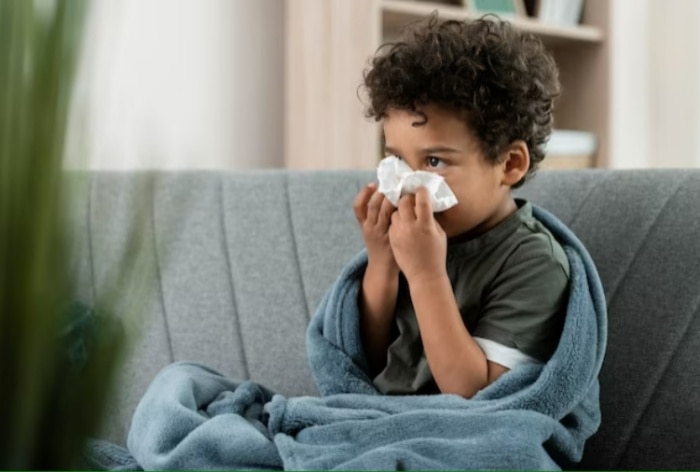Seasonal Allergies in Kids: Your child’s body’s response to generally safe chemicals causes allergies. The severity of allergy symptoms can range from minor to fatal.

Seasonal Allergies in Kids: Your child is probably experiencing seasonal allergies, often known as hay fever if they experience runny noses, itchy eyes, and tickly throats at particular times of the year. Your child’s body’s response to an alien protein is an allergy. These proteins, or allergens, are often harmless. The immune system in your body overreacts when a certain protein is present in your body if you are allergic to it.
The onset of seasonal allergies varies throughout the year. Seasonal allergy symptoms, also known as allergic rhinitis or hay fever, appear when airborne irritants or allergens enter the eyes, nose, or throat and cause an allergic reaction.
SEASONAL ALLERGY SIGNS AND SYMPTOMS IN KIDS
Sneezing, runny or stuffy nose, itchy eyes and nose, sore throat, coughing, and dark circles under the eyes are all signs of seasonal allergies. There may be more to seasonal allergies than just a minor irritation. Children who have allergies may have the following effects:
- watery and itchy eyes
- itchy sinuses or throat
- headache
- shortness of breath
- coughing
SEASONAL ALLERGY CAUSES IN KIDS
Here are a few reasons that might make you think your child could have an allergy:
- Molds that are too tiny to be seen with the human eye can trouble your child.
- Pets with fur include cats, dogs, gerbils, rabbits, guinea pigs, and other species.
- Items produced, trimmed, or filled using animal fur include clothing and toys.
- Rubber gloves, toys, and balloons that are used in homes and schools; elastic in socks, underwear, and other apparel; airborne particles.
- Certain foods
SEASONAL ALLERGY TREATMENT IN KIDS
Your child’s coughing and sneezing might be brought on by seasonal allergies. As a parent, you don’t simply have to tolerate seasonal allergies. Start by consulting your child’s physician, who may recommend antihistamines or nasal corticosteroids to treat your child’s allergy problems. A pediatric allergy expert may also be recommended by your doctor. If allergy testing is positive, the specialist may advise considering immunotherapy (allergy injections) to lessen allergy symptoms and the need for daily medication.
